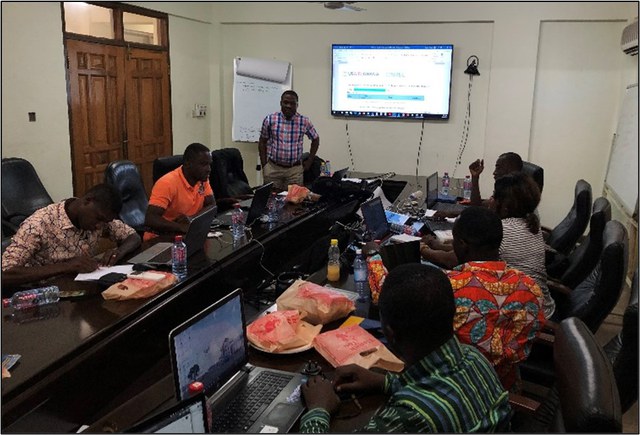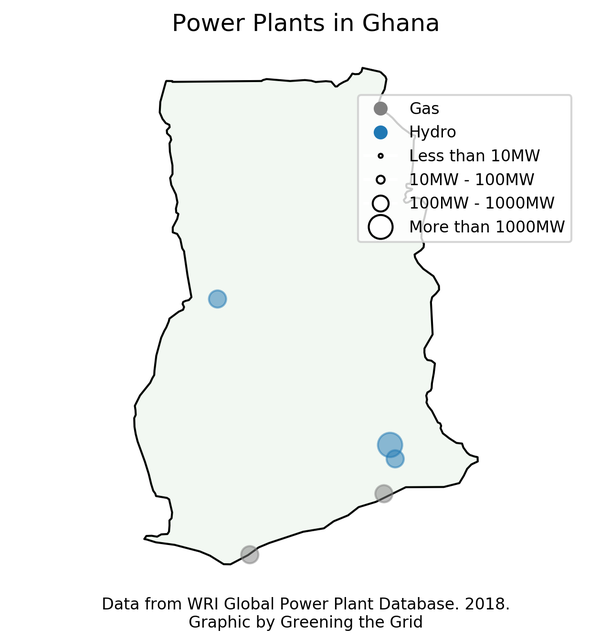Ghana
USAID Ghana mission support
The Government of Ghana (GoG) seeks to stabilize the financial health of its electricity sector to drive self-reliance through sustainable, inclusive, economic growth. Ghana currently has excess generation, but electricity remains insufficiently reliable and expensive, limiting growth and increasing financial risks across the value chain. With support from USAID, Ghana’s electricity sector planners have identified the “least regrets” strategy to meet long-term electricity demand. It is now critical to put the building blocks in place to operationalize the strategy that balances needs for a reliable, secure, resilient and low-cost supply of power.
Image: NREL delivers a training on DPV impact analysis with ECG engineers

NREL and USAID are providing technical assistance, capacity building, and other support to reduce barriers to adoption of advanced energy technologies in Ghana and help spur investment to develop the least-cost, least-regrets energy mix aligned with Ghana’s Integrated Power Sector Master Plan. At the core of NREL’s assistance is a focus on developing and embedding TOOLS and CAPACITY with Ghana’s power system operators, distribution companies, power generators and regulators so they are better prepared to respond to change in the power sector both now and in the future. This program impacts stakeholders through the entire power system value chain.
Current activities in this partnership include:
- ECG/NEDCo: Tool development and training to perform impact analyses for distributed PV to better understand the local impacts of rooftop PV on their networks to streamline DPV planning, deployment and interconnection and maximize the financial benefits of DPV to distribution network operations.
- GRIDCo: Training on load flow and system stability analysis to support interconnection studies and improve understanding of impacts of integrating VRE
- Bui Power Authority: Technical assistance to integrate 200MW of PV with existing hydro plants and address technical needs to enable effective hybrid operation.
- Volta River Authority: Capacity building and subsequent technical support to advance wind power project integration and hybridization
- Energy Commission: Establishment of joint working group together with PURC to carry out DPV financial and revenue impact analysis to inform policy incentive (e.g. net-metering) and regulatory decisions on DPV
Prior work
Greening the Grid partnered with USAID's Integrated Resource and Resilience Planning project to provide customized training to Ghana's power sector stakeholders on planning for an advanced energy system that supports solar energy integration, both at the transmission and distribution scales. USAID’s Power Africa program is working with utilities and the government in Ghana with the goal of reaching universal access to electricity by 2020, in part through additional renewable resources.
Power plant map


